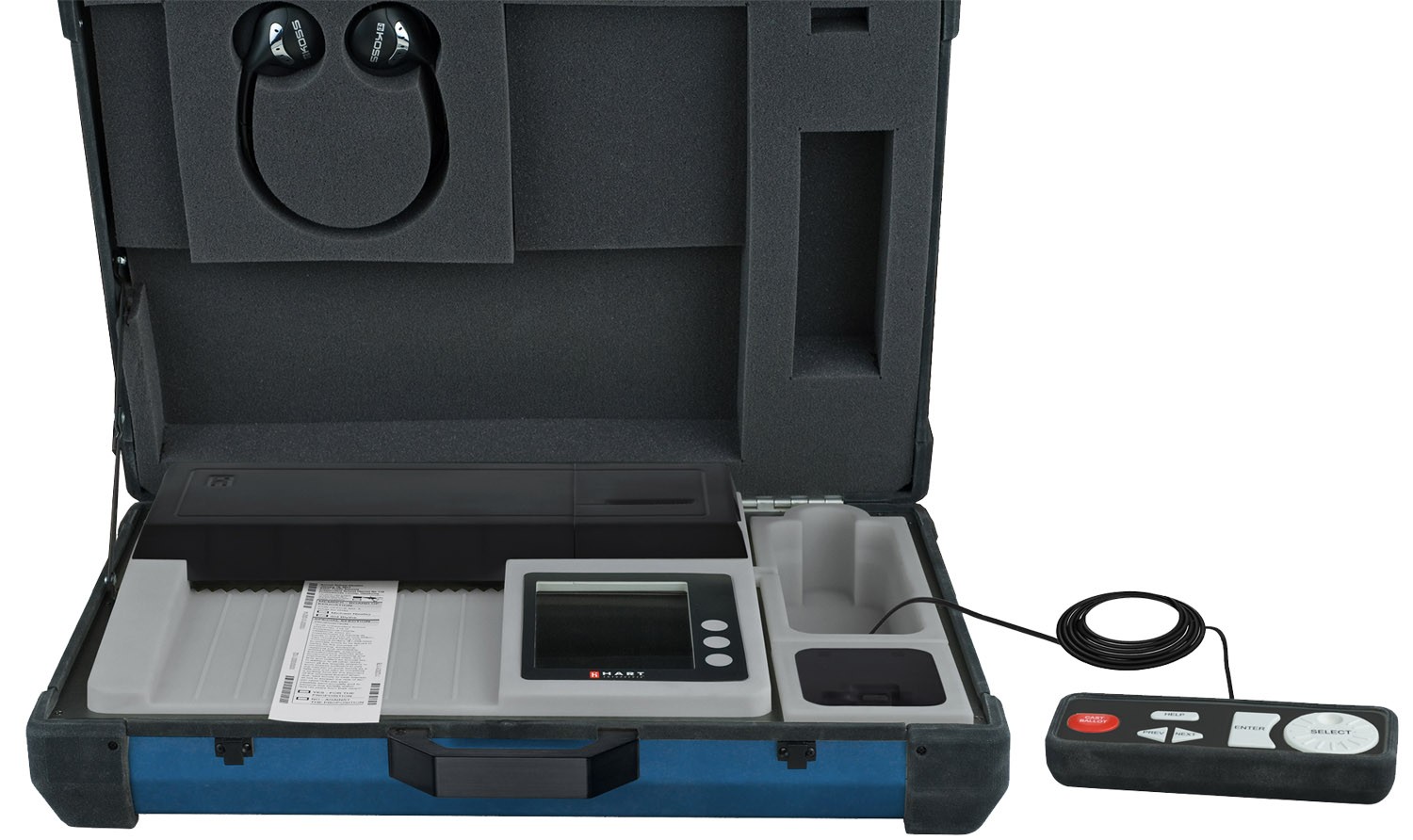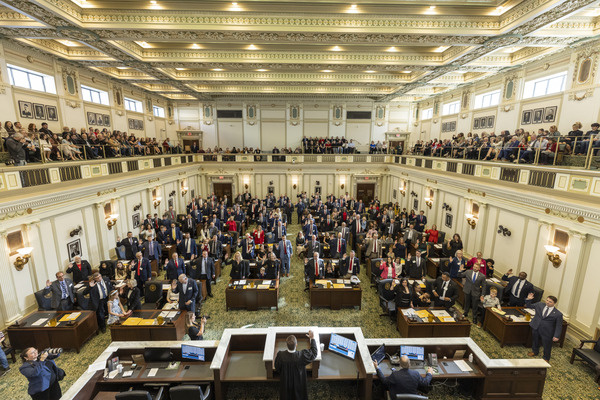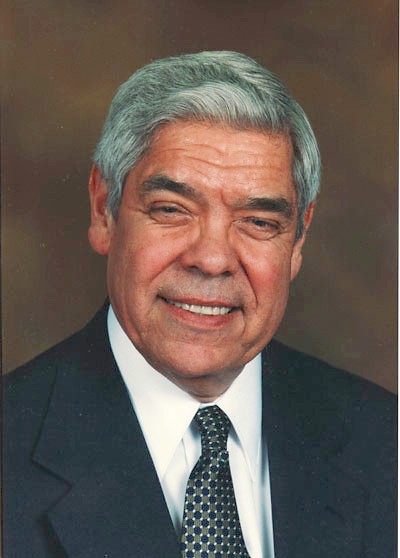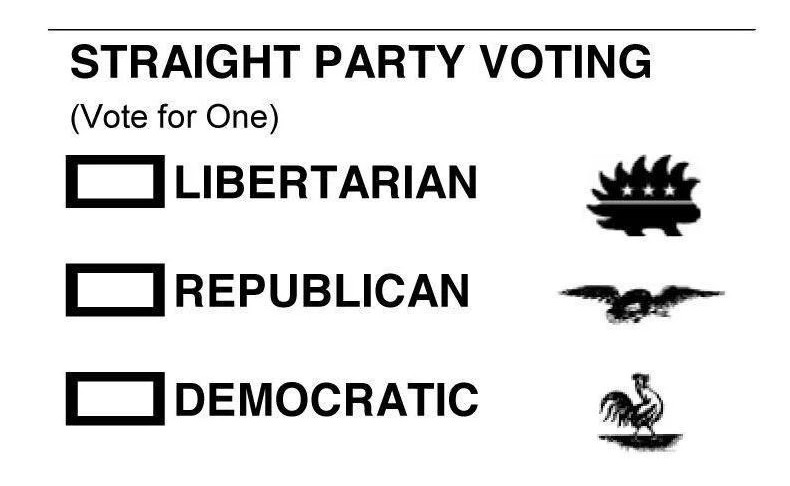Pictured: Oklahoma Legislature
Legislation for 2025 Session of Oklahoma Legislature
Abolition of Abortion
Sen. Dusty Deevers (R-Elgin) introduced Senate Bill 456, the Abolition of Abortion Act, seeks to protect the lives of all preborn children in Oklahoma by closing the self-managed abortion loophole. While clinics may be prohibited from performing abortions, pro-life laws currently being enforced allow mothers to order abortion pills online and administer them herself. Recent research from the Foundation to Abolish Abortion shows that an estimated 3,274 self-managed abortions are taking place annually in Oklahoma.
“This bill declares that life begins at conception and ensures that no person may lawfully terminate the life of a child in the womb. Preborn children are just as human as we are and our laws should reflect that,” Deevers said. “We cannot pat ourselves on the back when the job is clearly not done. Children are still being murdered under the color of our laws. It is time to step up and truly protect life in Oklahoma by abolishing abortion.”
Strategic Bitcoin Reserve Act
State Rep. Cody Maynard (R-Durant) filed the Strategic Bitcoin Reserve Act to position Oklahoma as a national leader in embracing sound money principles and cutting-edge fiscal policy. Aligned with President Trump’s vision for digital assets and financial stability, House Bill 1203 would allow Oklahoma’s state savings accounts and pension funds to invest in digital assets like Bitcoin. Maynard said the investments would be managed prudently to meet the needs of fund managers, generate reliable returns for citizens, and safeguard purchasing power against inflationary pressures.
“Bitcoin represents freedom from bureaucrats printing away our purchasing power,” Maynard said. “As a decentralized form of money, Bitcoin cannot be manipulated or created by government entities. It is the ultimate store of value for those who believe in financial freedom and sound money principles.” The measure would ensure Oklahoma is prepared for a future where digital assets play a pivotal role in the global economy, Maynard said. “By diversifying our state’s savings and pension funds into digital assets, we are not only securing a stronger financial future for our state but also demonstrating Oklahoma’s leadership in adopting innovative fiscal policies.”
Bitcoin Freedom Act
Sen. Dusty Deevers (R-Elgin) filed Senate Bill 325, the Bitcoin Freedom Act, that would allow Oklahoma employees to opt to receive payment in Bitcoin and enable vendors to accept Bitcoin payments. “In a time when inflation is eroding the purchasing power of hard-working Oklahomans, Bitcoin provides a unique opportunity to protect earnings and investments,” Deevers said. “As Bitcoin continues to rise and the value of the dollar continues to be printed away in Washington D.C., Oklahoma must act to protect our people.” Participation is entirely voluntary, respecting free-market principles and empowering employees, employers, and businesses to choose the payment options that work best for them.
Bitcoin, a decentralized crypto currency with a fixed supply, is increasingly seen as a hedge against inflation. Unlike traditional currencies, which can be devalued by monetary policies as has been experienced with the U.S. dollar in recent years, Bitcoin offers an alternative for preserving wealth. “There is a reason President Trump campaigned heavily as a pro-Bitcoin candidate and spoke at prominent Bitcoin events. Bitcoin has arrived into the mainstream of our economy and is unquestionably a significant part of the financial future,” Deevers said. “This legislation puts Oklahoma in a leadership role nationally, ensuring our state embraces the future of financial technology while providing our citizens with more financial options.”
Restrict Green Energy
Rep. Jim Shaw (R-Chandler) filed a series of bills that range from placing a moratorium on green energy projects to creating setbacks to recapturing tax subsidies from the industry. “I told my constituents when running for office I would fight against the green energy insanity that has come to a peak during the Biden Administration,” Shaw said.
House Bill 1450 would place an indefinite moratorium on all new industrial wind and solar facilities, or the expansion of existing facilities.
House Bill 1451 would establish setbacks for utility-scale solar farm facilities and would amend setbacks for wind energy facilities constructed after November 1. Setbacks would include 1.5 nautical miles from the center line of a runway at a public-use or municipal-owned airport, from any public school, and from a hospital; and three miles from any nonparticipating property line. Shaw said industrial wind already has 1.5 nautical mile setbacks from hospitals, schools and airports, so he is leaving that as-is, but he’s including a fourth category for nonparticipating property lines. Solar has no setbacks or regulations today.
House Bill 1452 would create the “Green Energy Subsidy Recapture Tax Act.” Starting October 1, all industrial wind and solar companies operating in Oklahoma would be assessed a tax equivalent to the federal subsidies they’re receiving.
Eliminate Wind Energy Tax Credit
Sen. Jonathan Wingard (R-Ada) filed legislation to end state tax subsidies for wind farms. Senate Bill 239 would eliminate the zero-emission subsidy for wind production after tax year 2025. Eliminating this tax credit will save taxpayers up to $16 million annually. “Oklahoma taxpayers have already invested hundreds of millions of dollars in subsidies for wind farms across the state, and it’s beyond time to end this costly practice,” Wingard said. “While new wind projects no longer qualify for these credits, existing operations continue to receive significant tax breaks even though Oklahoma families don’t benefit from these green-energy initiatives.” The state significantly scaled back the zero-emission tax credit when former Gov. Mary Fallin signed legislation eliminating the tax breaks for wind facilities that became operational after July 1, 2017. Some wind farms, however, have been grandfathered in and continue to receive the 10-year tax credit that is based on the amount of wind energy they generate.
Halt Electric Vehicle Incentives
Senate Bill 294, authored by Sen. Adam Pugh (R-Edmond), would exclude Electric Vehicle (EV) manufacturers from receiving money from the Governor’s Quick Action Closing Fund which was created in 2011. Pugh said the state needs to shift its focus away from trying to make Oklahoma a hub for EV manufacturers. In recent years Oklahoma has tried to lure EV and EV battery manufacturers such as Tesla and Panasonic by offering such incentives. One company that Oklahoma did bring to the state was EV van manufacturer Canoo, which was approved to receive about $100 million in incentives from various state and local programs. Last year Canoo collected $1 million from the fund after it created 100 jobs in the state. But, late last year it closed its factories in Oklahoma City and Pryor.
Diesel Engine Freedom Act
Sen. Dusty Deevers (R-Elgin) filed Senate Bill 457, the Diesel Engine Freedom Act, to protect the rights of Oklahomans to own, operate, and manufacture diesel engines free from burdensome EPA regulations, specifically those requiring Diesel Exhaust Fluid (DEF) systems. “Our farmers, truckers, and businesses rely on diesel engines every day to power their work and their dreams,” Deevers said. “An owner of a trucking company in Oklahoma City told me that this bill, if passed, would save his business $30,000 per month, $3.6 million per year. That is the difference between thriving and shutting down.”
The legislation would prevent state and local enforcement of unconstitutional and extremely burdensome federal DEF mandates, allowing individuals and businesses to use reliable, cost-effective diesel engines. It enables Oklahoma manufacturers to produce DEF-free engines without federal interference, and shields businesses penalized under federal environmental regulations, ensuring they are not unfairly burdened.” This legislation sends a clear message to Washington: Oklahoma will look out for its people instead of bowing to unconstitutional EPA mandates rooted in climate hysteria that threaten our livelihoods and industries,” Deevers said.
.
Reduce State Income Tax Rates
Sen. Micheal Bergstrom (R-Adair) filed Senate Bill 1, a tax reform proposal designed to reduce Oklahoma’s income tax rates in a responsible and measured way. Under the bill, the state’s marginal income tax rate will be reduced by 0.25 percentage points across all income brackets. Future reductions are tied to revenue growth, with the Board of Equalization tasked with determining if total state revenue has increased by at least $400 million compared to the fiscal year before the most recent tax cut. Each time this benchmark is met, another 0.25 percent reduction will be triggered, continuing until the top marginal income tax rate is zero.
To protect the state’s financial health, the bill includes safeguards to delay tax cuts during times of revenue failure. If a shortfall occurs after a tax cut has been triggered, but before it takes effect, the reduction will be postponed until revenue growth resumes. Additionally, starting in 2035, the $400 million benchmark will adjust every ten years to account for inflation, ensuring the plan remains economically viable over time.” This measured, step-by-step approach ensures that our state remains on a sound financial footing while giving families and businesses more of their hard-earned money back,” Bergstrom said.
Tax Elimination and Reduction Bills
Sen. Dusty Deevers (R-Elgin) introduced a slate of legislation to reduce the tax burden on Oklahomans. “As Governor Stitt said recently, `when we have excess revenue, and Oklahoma certainly does, that means it’s time for tax cuts.’ Rather than using increasing revenue and surpluses to grow government, we need to put money back in the pockets of the people of Oklahoma,” Deevers said.
Senate Bill 305 would immediately eliminate the State individual income tax. Senate Bill 322 would immediately eliminate the State corporate income tax. Senate Bill 308 would gradually reduce the income tax by 1 percent per year until eliminated by 2029. Senate Bill 323 would gradually reduce the State corporate income tax by 1 percent per year until eliminated in 2028. Senate Bill 311 would reduce the gross production tax on the oil and gas industry from 7 percent to 5 percent. Various tax credits for Oklahoma families and family-oriented initiatives would be provided by Senate Bill 228, Senate Bill 281, and Senate Bill 328.
Eliminate State Income Tax by 2035
Rep. Jay Steagall (R-Yukon) filed legislation to phase out Oklahoma’s personal and corporate income taxes over a decade, with the goal of eliminating the tax entirely by 2035. House Bill 1009 would reduce the personal income tax rate by 0.00475% annually and the corporate income tax rate by 0.004% annually over 10 years. Steagall had filed a nearly identical bill, for consideration during the 2024 legislative session. “Recent polls show that Oklahomans overwhelmingly support the elimination of the state income tax, an effort for which I have filed legislation in the past two years and filing once again for the 60th Legislature,” Steagall said. “The state income tax is a clear violation of our own state constitution, and I will continue to pursue righting this wrong in the upcoming session.” The state income tax was created statutorily in 1915. Stegall noted that the gradual reduction over a decade would give the Legislature ample opportunity to act on tax reform.
Protect Seniors from Rising Property Taxes
Rep. Robert Manger (R-Oklahoma City) filed House Joint Resolution 1001 aimed at providing financial relief to Oklahoma senior homeowners. This initiative seeks to stabilize property taxes for those aged 65 and older who meet certain criteria, ensuring that they can remain in their homes without the burden of rising property taxes. “This measure is about protecting our seniors and eliminating the worry about property taxes skyrocketing as they retire,” Manger said. “By freezing taxable property values for qualifying seniors, we are helping them maintain stability and control over their financial future.” Under the proposal, homeowners would need to meet specific eligibility requirements, including being 65 years or older, occupying their home for at least 10 years and ensuring the property’s fair cash value does not exceed $500,000. Temporary absences from the home, provided they do not exceed 365 days within a 10-year period, would not disqualify eligibility.
The measure was filed as a House Joint Resolution which, if passed by the Legislature, would give Oklahoma voters the opportunity to decide whether to incorporate the proposal into the Oklahoma Constitution. HJR1001 states that the fair cash value of a qualifying senior’s homestead would be frozen at the value it held when the senior turned 65. This freeze applies even if property values in the area increase. The measure would also eliminate income-based eligibility, ensuring that all seniors who meet the age and occupancy criteria can benefit, marking a significant departure from the existing rules. Additionally, any new improvements to a senior’s home would be added to the taxable value and once adjusted, the fair cash value total would remain for as long as the senior continues to own and occupy the property.
Tax Relief Bills
Senate Democratic Leader Julia Kirt (D-Oklahoma City) filed a pair of bills providing tax relief for Oklahomans struggling with rising costs and stagnant wages. Senate Bill 71 would, for the first time, provide a tax benefit to those who rent their home. It would give renters a $110 annual credit. Currently, only owners can deduct housing expenses. “Everyone needs a home, but many working Oklahomans can’t afford to buy a house. Most spend half of their income on rent, which continues to rise,” Kirt said. Senate Bill 72 would modernize the state’s sales tax relief credit. The bill would raise the sales tax relief credit from $40 up to $200 per person, including dependents. Kirt said the sales tax relief credit has not been adjusted since it first became law in 1990.
Exempt Nonprofits from Sales Tax
Rep. Marilyn Stark (R-Bethany) has again filed legislation to provide a sales tax exemption to certain nonprofits. House Bill 1171 would provide a sales tax exemption to nonprofit organizations with $3 million or less in annual gross revenue. Alcohol and tobacco purchases would not be considered exempt purchases. “I’ve been working on this policy proposal for several years now, and I hope that this is the year we get it across the finish line,” Stark said. “Allowing our nonprofits, which do so much good for our communities, to become exempt from sales taxes would be a great benefit to these organizations and the people they serve.” Stark ran similar legislation, House Bill 1568, in 2023. The measure passed the House 70-17 but was not heard on the Senate floor. She led an interim study on the topic in October 2023.
Tax-free Weekend Modification
Sen. Kristen Thompson (R-Edmond) filed legislation to include school supplies and athletic equipment among the items exempted from sales taxes during Oklahoma’s tax-free weekend in August. Senate Bill 231 would exempt common school supplies – such as backpacks, binders, pens, pencils, markers and notebooks – from state and local sales taxes during the state’s annual sales tax holiday, the first weekend in August. Recreational equipment, including cleats, gloves, mouth guards, shoulder pads and goggles, would also be tax-exempt under the bill.
Currently, only clothes and shoes that cost less than $100 are exempt from sales taxes during Oklahoma’s tax-free weekend. However, this exemption does not include special clothing, footwear, or accessories primarily designed for athletic activities. “Expanding the items discounted during Oklahoma’s tax-free weekend is a common-sense way to give families additional tax relief while simultaneously boosting business at local retailers,” Thompson said. “Back-to-school shopping can add up, and many Oklahomans don’t realize that these classroom essentials aren’t already exempt from sales taxes during this key shopping weekend. This simple change will ease the financial burden on parents and ensure every child has the tools they need to excel in the classroom and on the field.”
Move School Board Elections
Rep. Chris Banning (R-Bixby) has again filed legislation to change the date of school board elections in Oklahoma. If passed, House Bill 1151 would move school board elections to the same cycle as House and Senate elections, as well as modify term lengths for school board members by making both elementary district boards and independent district boards four-year terms. Under state statute, school districts must reimburse county election boards for all costs of school board elections. In 2023, these elections cost Oklahoma school districts a combined $16.8 million, taxpayer funds Banning said could go toward other educational purposes. “This bill is simple-it repurposes millions of dollars for our amazing educators while providing a more accurate representation of community standards at the polling place,” Banning said.
Under the legislation, these elections would move to the same schedule as legislative elections, which are held in June and November. Currently, school board elections are held in February and April. Banning said there are many examples of very low voter turnout in these elections. He pointed out the April 2024 election to fill Union Public Schools Board seat for Zone 4, which only 146 people voted in. Last year, Banning ran a nearly identical measure, which passed the House Elections and Ethics Committee, but was not heard on the House floor.
School Cell Phone Policies
Sen. Ally Seifried (R-Claremore) filed legislation instructing all public school districts to adopt policies preventing student cell phone use from “bell to bell.” Seifried filed Senate Bill 139 after she cohosted a two-day interim study to explore the educational challenges that arise when students have their cell phones in the classroom. During the study, over a dozen educators and mental health professionals discussed how student phone use leads to poor academic outcomes and overall worse mental health. “With national research increasingly showing that classroom phone use harms students’ grades and their overall well-being, more states are taking action to limit devices in schools,” Seifried said.
The legislation empowers school districts to craft their own policies for restricting cell phones for the entire school day. These policies must accommodate students who use their phones to monitor medical conditions and allow phone use in emergencies. Districts must also detail disciplinary steps for students who violate phone-free policies. Seifried’s bill also directs the Oklahoma State Department of Education to establish a grant program to help middle and high schools implement phone-free policies.
Teacher Certification
With Oklahoma continuing to rely on thousands of emergency certifications to counter a shortage of classroom teachers, Sen. Mark Mann (D-Oklahoma City) filed Senate Bill 186 that would create the Teacher Certification Emergency to Permanency Revolving Fund. The Office of Educational Quality and Accountability would administer a grant program to provide emergency certified educators with funding to help earn alternative teaching certificates, and ultimately, earn a regular teaching certificate. “We have more than 4,000 people in our state who’ve changed careers, helping meet the ongoing, critical need for teachers. My legislation will provide grants for the additional training and certification,” said Mann.
Classroom Integrity and Transparency
Sen. Micheal Bergstrom (R-Adair) filed two pieces of legislation aimed at enhancing student safety and ensuring transparency and accountability in Oklahoma’s classrooms. Senate Bill 346 would require full-time teachers seeking new employment or substitute teaching roles to provide a written statement to potential school districts. This letter would attest to whether there were any allegations of inappropriate behavior between the teacher and students or if there is a pending or ongoing investigation into such behavior. This measure applies to teachers who have had a criminal history record check within the preceding five years. “Bouncing predators and problem teachers from school to school must come to an end,” Bergstrom said.
Senate Bill 348 focuses on the responsibility of school district boards and administrators to oversee instructional materials available in classrooms and libraries. The bill requires districts to adopt policies for handling objections to instructional materials, ensuring a timely resolution process. Materials subject to objection must be removed within five school days and remain unavailable until the issue is resolved. Parents, legal guardians, and district residents would also have the right to contest the adoption of instructional materials or read passages from them during the objection process. Additionally, it strengthens the duties of review teams under the State Textbook Committee, requiring that textbooks selected be free from obscene content.
Menstrual Products for Students
Twenty-eight states and the District of Columbia have passed laws to provide free menstrual products in schools. Sen. Nikki Nice (D-Oklahoma City) filed legislation that would add Oklahoma to that list – a move she said would improve attendance and student success. “One in four struggles to afford these products, and when students don’t have access to them, they may miss class. It’s stressful and embarrassing. It leads to higher student absenteeism, lower academic performance, and it can even cause some students to drop out,” Nice said. “States that have enacted laws providing these products saw improved attendance, and that’s important for our efforts to help Oklahoma students succeed.” Senate Bill 219 would require schools to make menstrual products available at no cost in public schools. “We provide basic hygiene items like toilet paper and soap in our schools. Menstrual products are also hygiene products and they’re just as much a necessity as soap, water and toilet paper,” Nice said.
School Library Materials
Sen. Warren Hamilton (R-McCurtain) filed legislation to require Oklahoma public school districts and charter schools to submit a list of all available library materials to the State Department of Education by October 1 each year. Under the provisions of Senate Bill 19, schools would be prohibited from having any inappropriate materials available to students. “Oklahoma students should be able to read and learn in a safe environment, free from exposure to explicit materials. Parents should also have peace of mind knowing that their children are not able to access inappropriate content while at school,” Hamilton said. “This bill ensures that parents and the State Department of Education can hold schools accountable for exposing children to inappropriate materials, while also putting parameters in place to ensure such content isn’t available in the first place.” Hamilton’s bill would also require schools to implement written policies for evaluating the educational relevance and age-appropriateness of library materials, as well as for managing and responding to complaints about books and materials in libraries
Foreign Contributions to Higher Education
Sen. Micheal Bergstrom (R-Adair) filed Senate Bill 349, a measure aimed at ensuring greater transparency in financial contributions from foreign entities to Oklahoma’s higher education institutions. Under the bill, all state and accredited private institutions of higher education in Oklahoma will be required to submit a quarterly report detailing any contracts, gifts, grants, endowments, awards, or donations exceeding $50,000 received from foreign sources. These reports will be made publicly accessible under the Oklahoma Open Records Act. “The public has a right to know where significant funding for our higher education institutions is coming from, especially when it originates from foreign entities.” Bergstrom said. The legislation also imposes penalties for noncompliance. Institutions that fail to report qualifying contributions face fines of up to $10,000 per incident, with the fine amount and any unreported funding being deposited into the state’s General Revenue Fund.
In-State College Athletic Conference
Speaker Pro Tem Anthony Moore (R-Clinton) filed House Bill 1017 to create the Oklahoma College Athletic Conference Act and a corresponding exploration commission. It would establish a new intercollegiate athletic conference to promote and regulate college athletics among member institutions within the state. Participating teams would no longer compete with out-of-state teams. “With student athletes spending less time on a bus traveling to other states to compete, they would have more time in the classroom, improving their academic performance and their overall collegiate experience. As a result, we would expect to see a rise in college graduation rates,” Moore said. “In addition, this would save universities money on their athletic budgets.”
The language in the bill says the measure would foster more community and state pride, enhancing the student and fan experience by providing better in-state rivalries. It also would allow better in-state recruiting – keeping Oklahoma students in the state. HB1017 also would create the Oklahoma National Collegiate Athletic Association (NCAA) Division II Athletic Conference Commission that would be responsible for exploring and making recommendations regarding the creation of a new conference consisting of Oklahoma NCAA Division II Schools and others to be determined and named at a later date.
Internet Rights for Minors
Rep. Michelle McCane (D-Tulsa) introduced House Bill 1016 which would provide rights to minors who are involved in Internet content by ensuring they are compensated and can request to remove content in which they appear. “This bill would give minors appearing in for profit in online content, a rapidly growing industry, the ability to be compensated for that content and to request to remove that content if they choose,” McCane said. “Minors are not able to give consent for adults to use their image, name, and likeness in online content and do not receive the compensation the adult posting that content gets. This gives some power back to a minor and provides recourse for those who may be exploited.”
Improving Health Outcomes
Sen. Kristen Thompson (R-Edmond) filed Senate Bill 4 to improve health outcomes in Oklahoma. A recent study put Oklahoma as the eighth unhealthiest state in the nation. The initiative comes as incoming President Donald Trump’s administration aims to prioritize public health. Thompson’s bill specifically examines the use of certain harmful food additives that are prohibited in other countries. The legislation proposes stricter standards on 11 harmful additives, dyes, chemicals and oils in food products.
There is growing concern over dangerous chemicals and additives in food that have been linked to serious health issues, including developmental and behavioral challenges in children. “As a mom of three, I have experienced firsthand the adverse effects of chemicals and preservatives in our foods. This legislation is about putting the health and safety of Oklahoma’s children and families first. Our children deserve a healthy start in life, free from exposure to harmful chemicals during critical stages of their development,” Thompson said.
Exams on Unconscious Patients
House Bill 1172 by Rep. Marilyn Stark (R-Bethany) would prohibit healthcare providers overseeing a training program with medical students from performing certain examinations on a patient who is under anesthesia or unconscious. These include breast, pelvic, urogenital, prostate or rectal examinations. The measure is similar to a bill Stark filed last year. “The performance of these examinations without the explicit consent of the patient is a clear violation of their trust and their human dignity,” Stark said. The legislation gives every patient the choice to preemptively approve or refuse to undergo these exams while under anesthesia. It also provides certain exceptions, including if the patient or authorized representative of the patient has provided prior written informed consent to the examination, or if an emergency occurs or a court has ordered the examination to collect evidence.
The performance of these exams on unconscious patients had been a common practice in medical schools and teaching hospitals for many decades, but new guidance from the U.S. Department of Health and Human Services now requires providers to obtain prior consent for breast, pelvic, prostate and rectal exams for educational and training purposes. As of 2023, 20 states had laws prohibiting pelvic examinations on unconscious patients, and 13 states were considering similar legislation. Any health care provider found guilty could face a felony conviction, a prison sentence of up to five years, or a fine of $20,000. They could also face penalties from the licensing board responsible for their area of practice.
OTA Due Process
Sen. Lisa Standridge (R-Norman) filed Senate Bill 80, legislation aimed at increasing transparency and public involvement in the Oklahoma Turnpike Authority (OTA) projects. The bill would establish clear requirements for public notification, input, and oversight before any new turnpike or modifications to existing turnpikes can proceed. “Our Constitution guarantees due process for every citizen,” Standridge said. “As a nation we give the worst of the worst criminals, including serial killers, due process; we certainly owe landowners in the path of a potential turnpike the same. This legislation ensures that the OTA operates with full transparency and accountability, prioritizing the interests of affected residents and businesses.”
Under the bill, the OTA will be required to provide notice to affected property owners and key state officials with comprehensive details, including maps and summaries of proposed projects. It will also mandate a minimum 30-day public comment period to gather feedback from residents, businesses, and consumer groups and require the OTA to hold hearings for stakeholders to present their views and arguments. Additionally, the agency must evaluate the effects of projects on property owners, businesses, and consumers, modifying proposals where necessary to minimize adverse impacts. The bill also grants standing for affected parties to file a lawsuit against the OTA if the OTA fails to comply with these requirements.
Rescind Constitutional Convention Calls
House Concurrent Resolution 1002, authored by Representative Jim Olsen (R-Sallisaw), would rescind previous resolutions by the Oklahoma Legislature which called for a constitutional convention (Con-Con) or a "convention of states," to propose amendments to the U.S. Constitution. The measure would “rescind, repeal, cancel, nullify, and supersede to the same effect as if they had never been passed, any and all extant applications by the Legislature of the State of Oklahoma to the Congress of the United States of America to call a convention to propose amendments to the Constitution of the United States of America, pursuant to the terms of Article V thereof.”
Constitutional experts warn that any Article V convention, no matter how well intentioned, could lead to a runaway convention and reverse many of the Constitution's limitations on government power and interference. In other words, a Con-Con could accomplish the same goals that many of its advocates claim to be fighting against. As evidence, both a 2016 and 2023 simulated "Convention of States" resulted in amendments massively increasing the federal government and expanding its spending powers. Olsen’s resolution further notes that the “Constitution of the United States of America has been amended many times in the history of this nation and may be amended many more times, without the need to resort to an Article V constitutional convention.”














Latest Commentary
Saturday 31st of January 2026
Saturday 31st of January 2026
Saturday 31st of January 2026
Saturday 31st of January 2026
Saturday 31st of January 2026
Saturday 31st of January 2026
Saturday 31st of January 2026
Saturday 31st of January 2026
Saturday 31st of January 2026
Saturday 31st of January 2026
Saturday 31st of January 2026
Saturday 31st of January 2026
Saturday 31st of January 2026